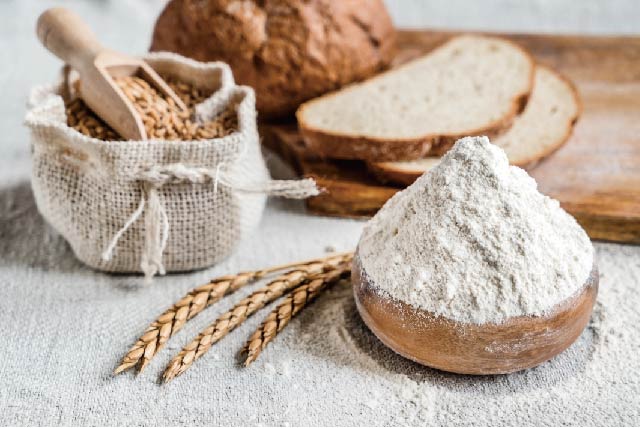-
Home > News & Events > Blog > Enzymes
Fungal α-amylase is the earliest, most basic, and widely used enzyme in the baking industry, playing a pivotal role in flour correction and dough product improvement.

Applications of Fungal α-Amylase in Baking
● Hydrolyzes damaged starch in wheat flour to produce small molecular dextrins and maltose, provide a nutrient source for yeast and enhancing the saccharification capacity of flour.
● Accelerates fermentation, reducing proofing time while improving fermentation stability.
● Improves bread texture and increases loaf volume.
● Enhances crust color.
Amylases can be classified into α-amylase, β-amylase, glucoamylase, and isoamylase based on their catalytic hydrolysis mechanisms. Depending on their sources, they can be categorized as fungal amylase, bacterial amylase, malt amylase, salivary amylase, and pancreatic amylase.
α-Amylase (α-1,4-D-glucan glucanohydrolase)** is widely distributed in animals, plants, and microorganisms and is a crucial starch-hydrolyzing enzyme. When acting on starch, it randomly cleaves α-1,4 glycosidic bonds within starch molecules, producing dextrins and reducing sugars. Due to the alpha configuration of the carbon atom at the end residue of the product, it is called α-amylase.
Fungal α-amylase is a member of the α-amylase family, primarily used to improve wheat flour and dough products. It compensates for the deficiency of endogenous α-amylase in flour, enhances saccharification capacity, and improves oven spring in baked goods. It is an essential basic enzyme in dough processing, baking, traditional Chinese pastries, and biscuit production.
Due to its unique properties, fungal α-amylase holds a distinctive position in baking applications, characterized by the following features:
1. pH stability —compatible with the pH environment of dough.
2. Low-temperature activity —effective at relatively low temperatures to achieve desired improvements.
3. Rapid thermal inactivation —completely deactivated within a short time at 70°C.

Applications of Fungal α-Amylase in Other Industries
1. Rice-based products such as infant rice cereal: The enzyme partially hydrolyzes starch into dextrins and oligosaccharides, addressing issues like high water absorption, clumping, and excessive viscosity during preparation, resulting in a smoother texture and better digestibility for infants.
2. Malt syrup production Hydrolyzes internal α-1,4 glycosidic bonds in starch to produce syrup with high maltose and low glucose content.
3. Rice wine brewing Helps stabilize fermentation, preventing inconsistencies such as excessive sweetness, low alcohol content, or high acidity in traditional brewing processes.
About Annzyme®:
Annzyme is a new brand for Angel enzymes products. We are dedicated to providing customers with perfect solutions in many fields like baking, proteolysis, nucleic acid hydrolysis, starch further-processing etc, and already built highly automated production lines for enzymes and other biological products. We are committed to become the best enzymes supplier and service provider.
Press contact:
Angel Yeast Co., Ltd.
Address: 168 Chengdong Avenue, Yichang, Hubei, P. R. China
Tel: +86-717-6369520
Fax: +86-717-6370680
Email: lili@angelyeast.com




